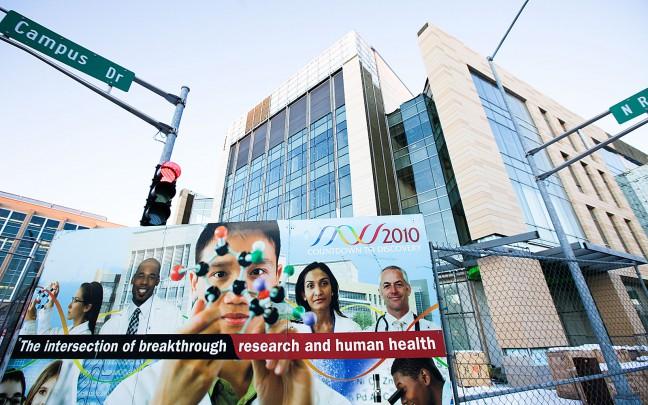All around the world, universities, community organizations and research centers are working together to share their knowledge about social and scientific issues.
To highlight the importance of these knowledge sharing networks, the United Nations Educational, Scientific and Cultural Organization released a detailed case study report analyzing these community-based relationships from around the world, including the U.S.
One of the contributing authors who lead the study from the U.S. is assistant director for Community-based Learning at the Morgridge Center for Public Service Elizabeth Tryon.
Partnerships between universities and communities, otherwise known as community-engaged or community-based research, allow researchers and communities to share ideas and problem solving solutions at the local, regional and national levels, Tryon said.
“These networks help highly trained academics, skilled at finding answers to questions in their disciplines, collaborate with those outside the academy with complementary skill sets and validated wisdom born of experience,” Tryon said.
For example, Tryon said junior faculty at University of Wisconsin trying to earn tenure may be interested in research that involves community organizations, but they don’t have the connections or time to work with these organizations.
That’s where Tryon steps in to help. With the aid of Margaret Nellis, a manager of academic partnerships at University Health Services, Tryon and Nellis reach out to community organizations in support of junior faculty members, or any faculty members, trying to engage in a partnership for their research.
“Really all the community is looking for in these cases are people following through with what they promised and honoring their insights and being inclusive of them when they set things up,” Tryon said.
Dadit Hidayat, a Ph.D. student at the Nelson Institute for environmental studies and co-author of the U.S chapter of the case study, said the Nelson Institute did most of the groundwork. Hidayat looked at all the key words across the country that had to do with community university research partnerships.
University and community partnerships are important to solving problems that are relevant to both sides. It is especially important that communities are really involved in the collaboration process because they understand how research or studies may pertain to issues that they are having in the community, Hidayat said.
“They [communities] are the ones who know best about their problems, they know what is it that needs to be addressed, they have information that would help design the research to be more relevant to their problems. They are welcome to tell what they want and know,” Hidayat said.
The hope is that the case report demonstrates research institutions’ and universities’ desire in creating partnerships in which the institutions work with each other, Hidayat said.
UNESCO is trying to show how countries with national policies that encourage these relationships, or with local research institutions like the Morgridge Center, that they are important because the people at these centers do not leave, Tryon said.
Students may leave universities, but the people at an institution like the Morgridge Center will have an “institutional memory” in building and establishing these relationships with the community and university, Tryon said.
“Co-editors are hoping that everyone that reads the report can look at what’s going on in other countries and learn from reports and work toward the goal of equity and research relationships,” Tryon said.




















